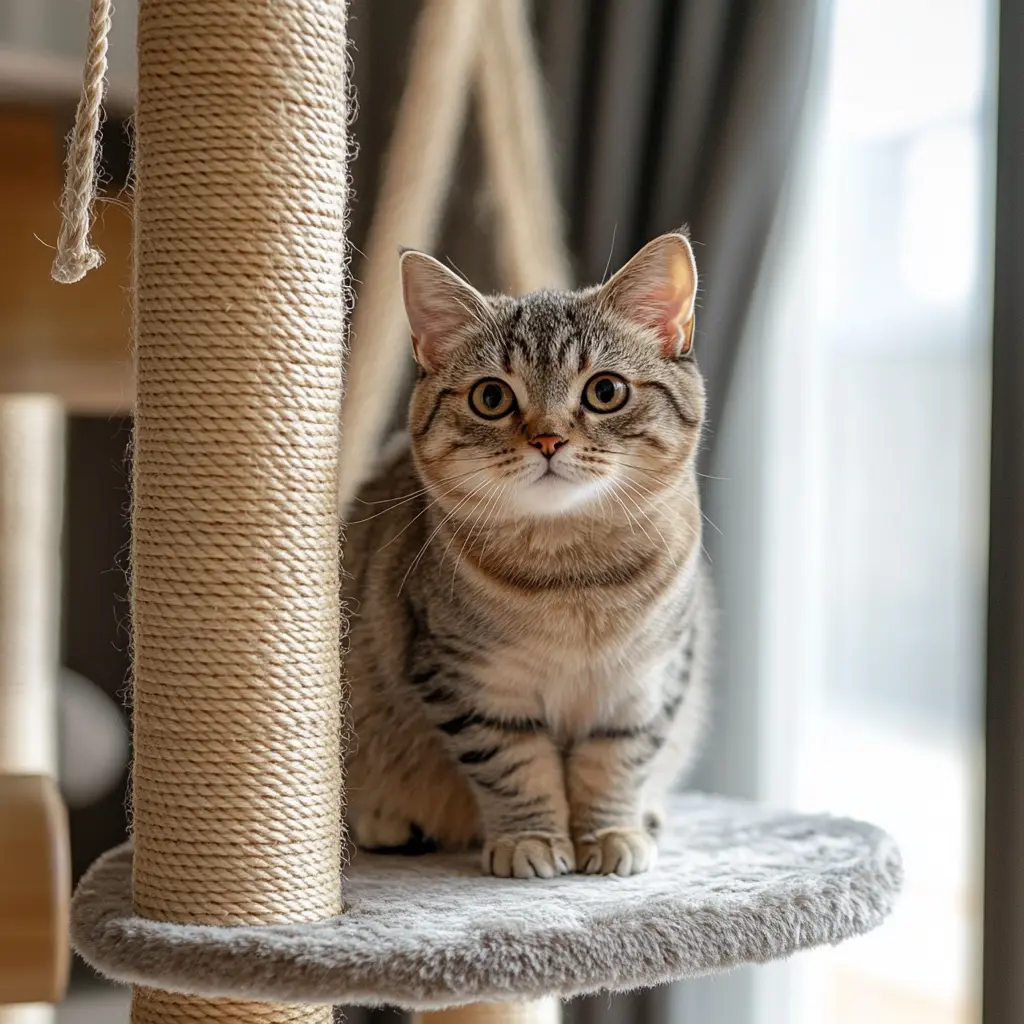Bringing a new cat into your home is a very exciting experience. However, it also comes with significant responsibilities. This comprehensive guide provides cat care tips for beginners. It will help you understand everything you need to know to ensure your new feline friend is healthy and happy. Whether you’re adopting a kitten or an adult cat, these essential tips will set you up for success. This guide will cover everything from creating a comfortable home environment to understanding your cat’s behavior. Therefore, you will learn all the important aspects of cat care.
Understanding Basic Cat Care Tips for Beginners
Before bringing your new cat home, it is very important to understand the basics of cat care. Specifically, these basic cat care tips will ensure a smooth transition for both you and your new pet. Firstly, it involves providing them with a safe space, a balanced diet, and lots of love. Additionally, understanding their needs is crucial for their well-being. Furthermore, this care forms the foundation of a happy relationship with your feline friend.
- Safe Environment: Creating a secure space is very important.
- Proper Nutrition: Feeding your cat a balanced diet is essential.
- Regular Grooming: Keeping your cat clean and free of mats is necessary.
- Litter Box Maintenance: Providing a clean litter box is important for hygiene.
- Health Care: Knowing your cat’s health requirements is critical.
Creating a Safe and Comfortable Home Environment for Your Cat
Creating a safe and comfortable home environment is one of the most important cat care tips for beginners. Cats are very sensitive to their surroundings. Therefore, a comfortable space is important for their well-being. Specifically, it will help your cat feel secure and happy. Moreover, a well-prepared home helps to reduce stress during the transition period.
- Safe Havens: Providing multiple safe spots where your cat can retreat.
- Scratching Posts: Supplying scratching posts to save your furniture.
- Climbing Structures: Offering climbing options that help with exercise.
- Hidden Areas: Creating hidden places for a sense of security.
- Secure Windows: Ensuring all windows and balconies are cat-proof.
- Removing Hazards: Ensuring all toxic chemicals and plants are out of reach.

Nutrition and Feeding Guidelines for Your Cat
Proper nutrition is a vital aspect of cat care. Therefore, this is one of the key cat care tips for beginners. Generally, a balanced diet is needed to keep your cat healthy and energetic. Additionally, understanding their dietary needs at different life stages is important. Furthermore, choosing the right food is crucial to preventing health problems.
- Choose High-Quality Food: Look for protein-rich foods that are appropriate for your cat’s age.
- Wet vs. Dry Food: Offer a mix of wet and dry food for variety and hydration.
- Avoid Table Scraps: Never feed your cat table scraps, as some human foods are toxic.
- Portion Control: Follow the feeding guidelines on the cat food packaging.
- Fresh Water: Ensure your cat always has access to clean, fresh water.
- Feeding Schedule: Establish a consistent feeding schedule for your cat.
Grooming Your Cat: Essential Practices
Regular grooming is a very important part of cat care. Specifically, it helps keep your cat clean, comfortable, and healthy. These essential grooming practices prevent mats, control shedding, and also allow you to check for any health issues. Therefore, it will benefit both you and your feline friend.
- Brushing: Brush your cat regularly, especially if they are long-haired.
- Nail Trimming: Trim your cat’s nails every few weeks.
- Bathing: Bathe your cat only when necessary.
- Ear Cleaning: Clean your cat’s ears periodically.
- Dental Care: Consider brushing your cat’s teeth or use dental treats.
Litter Box Basics: A Beginner’s Guide
Proper litter box management is a very basic aspect of cat care tips for beginners. A clean and easily accessible litter box will help prevent accidents and keep your cat happy. Additionally, choosing the right type of litter box and litter can make a big difference. Furthermore, a good setup is essential for your cat’s comfort.
- Litter Box Type: Choose a litter box that is suitable for your cat’s size.
- Placement: Place the litter box in a quiet and accessible location.
- Litter Type: Experiment to find a litter that your cat likes.
- Scooping: Scoop the litter box at least once a day.
- Cleaning: Regularly clean the entire litter box with soap and water.
- Number of Litter Boxes: Have at least one litter box per cat plus an extra one.
Understanding Cat Behavior: Key to Care
Understanding cat behavior is crucial for providing the best possible care. Cats communicate differently than humans. Therefore, it is essential to learn their signals. Specifically, this knowledge will help you respond appropriately to their needs. Furthermore, a better understanding of their behavior helps to strengthen your bond.
- Body Language: Learn to read your cat’s body language to understand their mood.
- Vocalizations: Pay attention to your cat’s meows and other vocalizations.
- Scratching: Understand why cats scratch and provide appropriate scratching options.
- Play: Engage your cat in regular playtime.
- Hiding: Respect your cat’s need to hide.
- Territoriality: Understand that cats can be territorial.

Health and Wellness Tips for Your Cat
Health and wellness are fundamental parts of responsible cat care. Specifically, knowing the essential health practices for your cat helps you ensure a longer, healthier life. Additionally, preventative care and recognizing early signs of illness are very important. Furthermore, consulting with a vet regularly is very crucial.
- Regular Vet Visits: Schedule regular checkups with your veterinarian.
- Vaccinations: Ensure your cat receives all the necessary vaccinations.
- Parasite Prevention: Use preventative measures for fleas, ticks, and heartworms.
- Dental Health: Take care of your cat’s dental health.
- Spaying/Neutering: Spay or neuter your cat to prevent unwanted pregnancies.
- Recognize Illness Signs: Be aware of signs of illness or discomfort in your cat.
Playtime and Enrichment for Your Cat
Playtime and enrichment are very important aspects of cat care. Specifically, these activities help to keep your cat mentally and physically stimulated. Additionally, they prevent boredom and behavioral problems. Furthermore, playtime also helps to strengthen your bond with your cat.
- Interactive Play: Engage your cat with toys such as wands and laser pointers.
- Puzzle Toys: Offer puzzle toys to challenge your cat’s mind.
- Scratching Toys: Provide various scratching toys.
- Climbing Options: Offer safe climbing structures like cat trees.
- Rotation of Toys: Rotate toys to keep your cat interested.
- Daily Play Sessions: Set aside time each day for play sessions with your cat.
Traveling and Moving with Your Cat: Important Care Considerations
Traveling and moving can be very stressful for cats. Therefore, it’s very important to plan carefully. Specifically, ensure their comfort and safety during these times. Additionally, preparing your cat for these changes will reduce their stress and anxiety. Furthermore, a smooth transition is possible with proper care and preparation.
- Secure Carrier: Use a safe and comfortable carrier for travel.
- Familiar Items: Include familiar toys, bedding, or clothing in the carrier.
- Microchipping: Make sure your cat is microchipped.
- Quiet Environment: Choose a quiet spot for your cat when moving.
- Patience: Be patient with your cat while they adjust to the new environment.
- Gradual Introduction: When moving, gradually introduce your cat to the new space.
Senior Cat Care: Special Considerations
As cats age, their needs change. Therefore, providing senior cat care requires extra attention. Specifically, older cats often require more frequent vet visits. Additionally, changes in their diet and environment may be needed. Furthermore, addressing age-related issues promptly is very crucial.
- More Frequent Vet Visits: Take your senior cat for more frequent checkups.
- Adjusted Diet: Offer a senior-specific diet that is easier to digest.
- Comfortable Bedding: Provide soft and comfortable bedding.
- Accessibility: Ensure your cat can easily reach food, water, and the litter box.
- Gentle Play: Engage in gentle play sessions.
- Observe for Signs of Pain: Pay close attention to signs of pain or discomfort.
Advanced Cat Care Tips for Experienced Owners
Once you’ve mastered the basic cat care tips for beginners, you might want to explore some advanced practices. These will further enrich the lives of your feline companions. Specifically, this includes behavior training. Additionally, it may involve enriching their environment. Furthermore, they might require a deeper understanding of their needs.
- Clicker Training: Try clicker training for behavior modification.
- Environmental Enrichment: Create an even more enriched living space.
- Advanced Health Monitoring: Learn to recognize subtle health changes.
- Multi-Cat Dynamics: If you have multiple cats, manage their interactions.
- Cat Communication Skills: Further study cat communication.
- Nutritional Fine-Tuning: Adjust your cat’s diet for optimal health.
Common Mistakes to Avoid When Caring for a Cat
While cat care can be very rewarding, new owners sometimes make mistakes. Therefore, being aware of common errors will help you avoid potential problems. Specifically, knowing what not to do is equally essential to providing great care. Furthermore, avoiding these missteps will ensure your cat stays happy and healthy.
- Ignoring Behavior Changes: Pay attention to any changes in your cat’s behavior.
- Overfeeding: Avoid overfeeding your cat, which can lead to weight problems.
- Neglecting Playtime: Ensure your cat gets enough play and interaction.
- Not Cleaning the Litter Box: Regular litter box cleaning is a must.
- Using Human Medications: Never give your cat human medication without vet approval.
- Assuming Independence: Although cats are independent, they still need regular attention.
Resources for New Cat Owners
There are many useful resources available for new cat owners. Specifically, these tools can help you further improve your cat care skills. Additionally, these will provide additional support and guidance. Furthermore, these resources offer information on various aspects of cat care.
- Veterinarians: Always consult with your veterinarian.
- Local Animal Shelters: Reach out to local shelters for adoption and care advice.
- Online Forums: There are many online cat forums for support.
- Books: Consult reliable books on cat care.
- Websites: Check out trustworthy cat care websites.
- Cat Trainers: Consider hiring a cat trainer for behavior issues.
This guide provides essential cat care tips for beginners. Therefore, this knowledge will help you offer the best possible care for your feline companion. These tips will help you ensure a long, happy and healthy life with your cat. Additionally, it will help you build a strong bond with your new pet. Finally, remember that every cat is unique. Consequently, it’s essential to learn what works best for your specific pet.

Frequently Asked Questions (FAQs)
Here are some frequently asked questions about cat care:
What is the 3-3-3 rule for cats?
The 3-3-3 rule refers to a cat’s first three days, weeks, and months in a new home. Specifically, the first 3 days they may hide, the first 3 weeks they start exploring, and after 3 months, they start feeling completely at home. Therefore, patience during this time is key.
How to take care of a cat for beginners?
Taking care of a cat as a beginner involves providing a safe environment, proper nutrition, grooming, regular litter box maintenance, and regular vet checkups. Additionally, playing with your cat and understanding their behavior is very important.
Where should a cat sleep on its first night?
On the first night, a cat should have a quiet, safe space to sleep. Specifically, a room with its litter box, food, and water is good. Generally, avoid forcing interaction with the cat.
Can I leave my cat alone for a week?
Leaving a cat alone for a week is not recommended. Indeed, cats need daily interaction, food, water, and litter box cleaning. Therefore, ask a friend, family member, or professional pet sitter to check on your cat.
- If you have any question you can contact us




